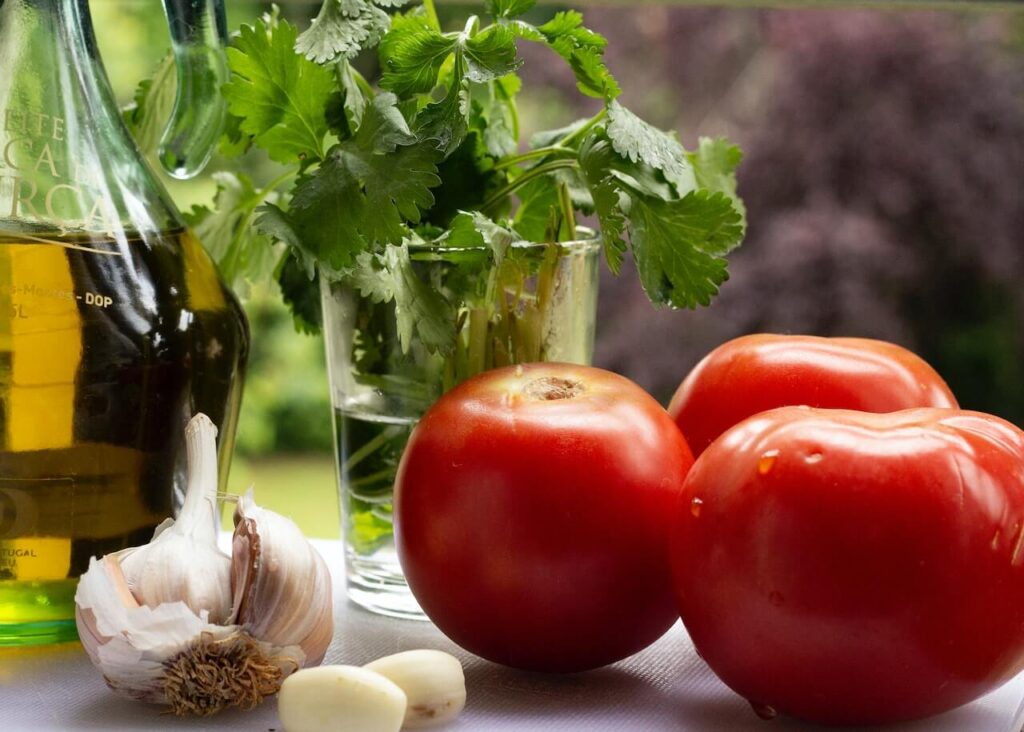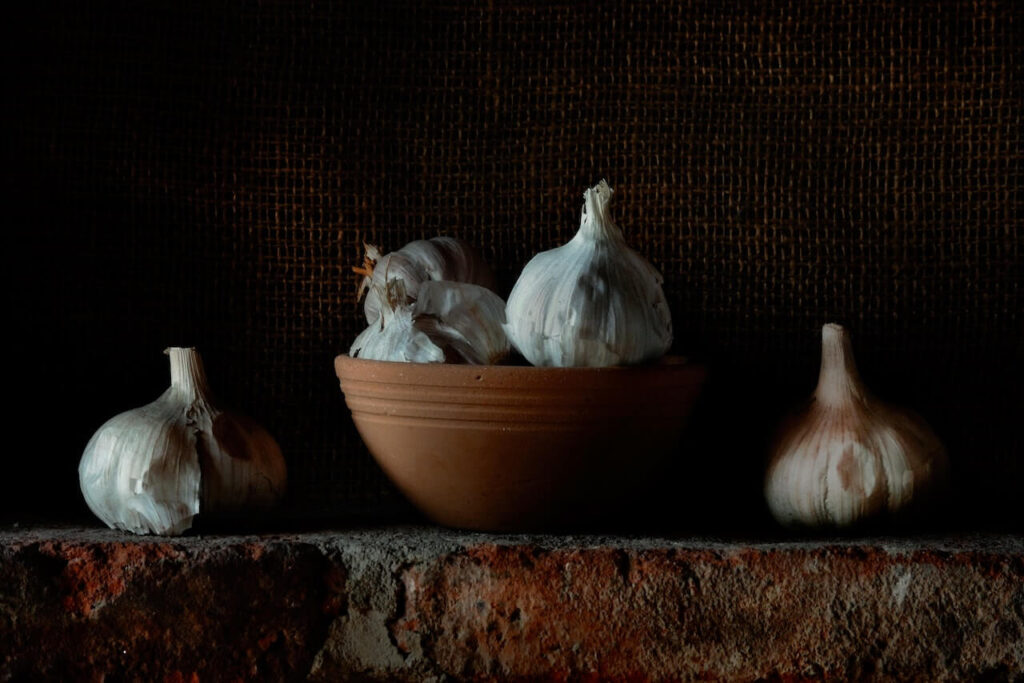“Is watermelon good for ulcers?” That is one question people who are faced with the challenge of stomach ulcers are bound to ask. Lots of people suffer from ulcers day in, day out and many have gone through intense pain because they have sores that cannot heal in their stomachs.
This type of ulcer has a lot of names including peptic ulcers, duodenal ulcers, gastric ulcers, and ulcers brought on by dyspepsia; Gastrointestinal bleeding and peptic ulcers, gastrointestinal haemorrhage and peptic ulcers, H. pylori and peptic ulcers, and helicobacter pylori and peptic ulcers.
That is quite a long list of names but all in all, they get to give the sufferer a hard time in their life. For the benefit of this write-up, we will be focusing on stomach ulcers.
What are stomach ulcers?
Gastric ulcers, often times known as stomach ulcers, are lesions that form on the lining of the stomach. They are called Duodenal ulcers when they develop in the area of the intestine that is immediately after the stomach. Also known as peptic ulcers, the symptoms of duodenal ulcers are the same as those of stomach ulcers, and they also go through the same treatments.
Known causes of stomach ulcers
Normally, the stomach and small intestinal lining can fend off powerful stomach acids. But if the lining disintegrates, things that might happen include tissue that gets swollen and inflamed (gastritis) or an ulcer.
The bacteria Helicobacter pylori (H pylori) infection of the stomach is the most frequent cause of ulcers. These bacteria are frequently seen in the gastrointestinal tracts of people who get peptic ulcers. However, many people with these bacteria in their stomachs do not get ulcers.
How does stomach ulcer occur?
The digestive system’s stomach is where food passes from the oesophagus and is further digested before the small intestine absorbs its contents. It generates acid and several enzymes that reduce food to its essential components.
A mucous lining covers the inner wall of the stomach, shielding it from acid and enzymes. The components that protect the stomach lining and the digestive fluids generated by the stomach must work in harmony in order to prevent ulcers.
The first layer of the inner lining is where most ulcers develop. Perforation is the medical term for a hole in the duodenum or stomach. When this happens, you should understand that a medical emergency has occurred.
Recommended – Is Zobo Drink Good For Pregnant Women?
What are the factors that contribute to the risk of stomach ulcers?
Your chance of developing peptic ulcers is increased by the following things including
- Overindulging in booze
- Usage of nonsteroidal anti-inflammatory medicines (NSAIDs) such as aspirin, ibuprofen, naproxen, or others on a regular basis.
- Chewing tobacco or smoking cigarettes.
- Being really unwell, including using a breathing machine
- Radiation therapy
- Stress
- Stomach and duodenal ulcers are brought on by the uncommon disorder known as Zollinger-Ellison syndrome.
What are the symptoms of stomach ulcers?
- Ulcer symptoms might include bleeding.
- An ulcer can occasionally cause the stomach wall to completely disintegrate.
- An important cause of stomach ulcers is the bacterium Helicobacter pylori.
- One typical sign is abdominal discomfort, frequently in the upper mid-abdomen. From person to person, the pain might vary. Not everyone experiences suffering.
When pain occurs, you mostly feel it In the upper abdomen; at night it may be so severe it wakes you up. The pain also occurs when you feel an empty stomach, often 1 to 3 hours after a meal.
Other symptoms of stomach ulcers include
- persistent heartburn
- Nausea
- Issues and an impression of fullness vomiting that may be bloody
- Drinking the typical amount of liquids
- Vomiting
- Black, tarry, or bloody stools
- Chest discomfort
- Fatigue
- Loss of weight
How do you detect stomach ulcers?
When you get to suffer from these symptoms, do not just go and start using any drug that comes to your mind, you might be treating the wrong issue. To be sure that you have an ulcer. you need to take a number of exams and tests including an upper endoscopy (EGD).
This test involves:
- An examination of the lining of the stomach, the first section of the small intestine, and the oesophagus (food pipe).
- A flexible endoscope with a tiny camera is placed down the throat to do the procedure.
- Most frequently, sedation must be administered by vein for this examination.
- In rare circumstances, a smaller endoscope that is inserted through the nose into the stomach may be utilised. Sedation is not necessary for this.
Known treatment for ulcers
Treatment plans for ulcers brought on by this bacterium frequently include both antibiotics to get rid of the infection and drugs to reduce stomach acid.
Your doctor will prescribe medications to treat your ulcer and stop relapse. If the H pylori bacterium is present, the medications will aid in killing it or lowering stomach acid levels.
H2 blockers like ranitidine (Zantac) and proton pump inhibitors (PPIs) including omeprazole (Prilosec), lansoprazole (Prevacid), esomeprazole (Nexium), rabeprazole (AcipHex), and pantoprazole (Protonix) are examples of acid blockers that can be reduced. You must take all of your medications exactly as directed. Other lifestyle modifications may also be beneficial.
The typical course of therapy for people with peptic ulcers and H pylori infections lasts between 7 and 14 days and involves various combinations of the following drugs: To eradicate H pylori, use two separate antibiotics. PPIs like omeprazole (Prilosec), lansoprazole (Prevacid), or esomeprazole (Nexium) may also be necessary for you.
The major component of Pepto-Bismol, bismuth subsalicylate, may be added to aid in the bacteriological destruction. If you have an ulcer without an H pylori infection or your ulcer was brought on by using aspirin or NSAIDs, you probably need to take a PPI for 8 weeks. If you continue taking aspirin or NSAIDs for other medical concerns, your doctor could also routinely prescribe this kind of medication.
Misoprostol is one of the other medications prescribed for ulcers. It may assist those who regularly take NSAIDs from developing ulcers. Additionally, you can utilise drugs like sucralfate that preserve the tissue lining.
To control excessive bleeding from a peptic ulcer, an EGD may be required. Among the techniques used to halt the bleeding are administering medication to the ulcer or applying metal clips or heat therapy to the ulcer. Surgery may be needed if the bleeding cannot be stopped with an EGD, or if the ulcer has caused a tear.
Read Also – What are the Benefits Of Cloves Sexually For Females?
What are watermelons?
The edible fruit of the flowering plant species known as watermelon (Citrullus lanatus) belongs to the Cucurbitaceae family. It is a scrambling, trailing vine-like plant with more than 1,000 different types of fruit that are widely farmed across the world.
For its enormous edible fruit, which is a berry with a hard skin and no internal divisions, watermelon is produced in hospitable conditions from tropical to temperate regions all over the world. This fruit is known botanically as a pepo. Although there are kinds without seeds, the delicious, juicy flesh is typically deep crimson to pink and contains numerous black seeds. The fruit can be consumed fresh, pickled, or cooked, and the rind can also be consumed. Additionally, it can be drunk as juice or a component of mixed drinks. In 2017, it was found that China produced about two-thirds of the world’s total of watermelons.
Origins of the Watermelon
Since they contain a lot of water, watermelons were originally grown for their high water content and kept to be consumed during dry seasons. At the historic towns of Bab edh-Dhra and Tel Arad near the Dead Sea, watermelon seeds were discovered.
Early watermelons had yellowish-white flesh, were bitter rather than sweet, and were challenging to open. Watermelons eventually tasted better and were simpler to open thanks to breeding.
The watermelon was brought to the New World by European settlers and Africans held as slaves, which aided in boosting its acceptability and popularity there. The contemporary, domesticated watermelon may have its ancestry in the Kordofan melon, a melon native to the Kordofan area of Sudan.
The loss of the bitterness gene shared by the Kordofan melon and domestic watermelon, as opposed to other wild African cultivars from various places, indicates a shared origin, probably cultivation in the Nile Valley about 4360 BP (before present).
World’s largest producers of watermelon
Watermelon output reached 101.6 million tonnes in 2020, with China (mainland) producing 60.1 million tonnes, or 60% of the total.
Turkey, India, Iran, Algeria, and Brazil were secondary producers in 2020, with a combined yearly output of 2.3 million to 2.5 million tonnes.
Watermelon as food
A delicious, popular summer fruit, watermelon is often eaten as fresh slices, chopped in fruit salads, or as juice.
You may make wine out of watermelon juice or mix it with other fruit juices.
The nutty-tasting seeds can be dried, roasted, or processed into flour. Although watermelon rinds can be consumed, their unpleasant flavour can be eliminated by pickling, often consumed as a vegetable, stir-frying, or stewing.
Nutritional value of watermelon
The fruit of the watermelon is 91% water, has 6% sugar and has little fat. A 100-gram (3+12 ounce) portion of watermelon fruit contains just little amounts of the key elements and 125 kilojoules (30 kilocalories) of dietary energy.
Only vitamin C, at 10% of the daily value, is present in any significant amount.
Lycopene is one of the carotenoids found in watermelon pulp. In watermelon rind, the amino acid citrulline is generated.
Exciting Read – What are Tiger Nuts Benefits Sexually?
Is watermelon good for ulcers?
Yes. One of the safest fruits for those with stomach ulcers is watermelon. Find out why we agree when asked the question, “is watermelon good for ulcers?” in the benefits given below:
What are the Benefits of watermelons to people suffering from stomach ulcers?
There is a list of benefits watermelon offers when suffering from a stomach ulcer. They include:
1. Helps increase blood flow in the stomach
Nitric oxide, a molecule that increases blood flow and induces generalised vasodilation, is similar to citrulline in this regard.
2. It helps neutralise stomach acid
Watermelon has a lot of water, which can aid in neutralising too much stomach acid. The fleshy fruit of a watermelon can be consumed or turned into a smoothie or juice.
3. It helps with the pain
If you have a gastrointestinal ulcer, you can sip watermelon juice to relieve the pain. Additionally beneficial for those with mouth ulcers is watermelon. Since watermelon is not acidic, it cannot aggravate ulcer pain or cause an ulcer pain emergency
4. Helps heal ulcers and stop bleeding
Additionally, watermelon includes important vitamins and minerals including vitamins C, K, and E, which aid in healing and stopping bleeding. Scientific research has also demonstrated the anti-ulcer and ulcer-healing properties of watermelon seeds.
As a result, watermelon is helpful for ulcers and speeds up the healing process if you have them.
The fruit of the watermelon really speeds up the healing of stomach ulcers by coating the lesion. Citrulline, a molecule found in it, aids in dilating blood vessels and encourages blood flow to the stomach.
There you have it, one other answer to the question: “is watermelon good for ulcers?”
5. Antioxidants for cleansing the body
Watermelon can occasionally contain some antioxidants. Antioxidants, also known as reactive species, or simply radicals, aid in the elimination of radicals from the body. Antioxidants, therefore, serve as a means of expelling these free radicals from the body.
These radicals are mostly brought on by an unclean environment, which results in air pollution, as well as by smoking, chronic stress, and other factors. A lot of stress can cause heart disease, cancer, and several other illnesses.
These antioxidants assist in curing these conditions, avoiding constipation, and promoting regular blood flow.
Can watermelon help cure ulcers?
Watermelon can help lower stomach acid since it has alkaline and watery composition. It guarantees that the wound is moisturised, which reduces your agony.
Keep in mind that an ulcer is an interior wound; if you continue to consume watermelon often, your ulcer can be treated thanks to citrulline, which encourages blood flow to the affected area.
Because it is not an acidic fruit, watermelon is beneficial for those who suffer from ulcers, ulcerative colitis, and acid reflux.
In conclusion,
We have been able to answer the question: Is watermelon good for ulcers? Yes, it is; and we can see the various ways it can help. But it is important to note that before using any supplements for ulcers, always get medical advice so as not to compound an already complicated situation.



